 W
WBenhuan was a Buddhist monk, Chan master and religious leader in China. He held several abbatial posts, such as being first abbot of the Hongfa Temple in Shenzhen, Guangdong. He was also the honorary president of the Buddhist Association of China in 2010, holding the position until his death in 2012.
 W
WDong Fuxiang (1839–1908), courtesy name Xingwu (星五), was a Chinese military general who lived in the late Qing dynasty. He was born in the western Chinese province of Gansu. He commanded an army of Hui soldiers, which included the later Ma clique generals Ma Anliang and Ma Fuxiang. According to the Western calendar, his birth date is in 1839.
 W
WDuan Qirui was a Chinese warlord and politician, a commander of the Beiyang Army and the acting Chief Executive of the Republic of China from 1924 to 1926. He was also the Premier of the Republic of China on four occasions between 1913 and 1918. He was arguably the most powerful man in China from 1916 to 1920.
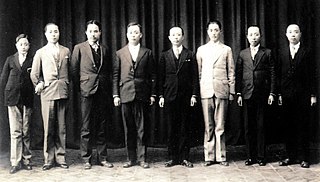 W
WThe eight Li brothers, also referred to as the Eight Stallions of the Li Family, are eight brothers from the Li family of Xiangtan, Hunan, China, who all thrived in the 20th century and achieved national or international fame. The best known among them are Li Jinxi, the "father of the Chinese phonetic alphabet" and teacher of Mao Zedong; Li Jinhui, the "father of Chinese popular music"; and Chin Yang Lee, whose bestselling novel The Flower Drum Song was adapted into a Broadway musical and an Oscar-nominated Hollywood film.
 W
WEmpress Dowager Cixi, of the Manchu Yehe Nara clan, was a Chinese empress dowager and regent who was the de facto supreme ruler of China in the late Qing dynasty for 47 years, from 1861 until her death in 1908. Selected as a concubine of the Xianfeng Emperor in her adolescence, she gave birth to a son, Zaichun, in 1856. After the Xianfeng Emperor's death in 1861, the young boy became the Tongzhi Emperor, and she became the Empress Dowager. Cixi ousted a group of regents appointed by the late emperor and assumed regency, which she shared with Empress Dowager Ci'an. Cixi then consolidated control over the dynasty when she installed her nephew as the Guangxu Emperor at the death of the Tongzhi Emperor in 1875, contrary to the traditional rules of succession of the Qing dynasty that had ruled China since 1644.
 W
WFeng Ru, also known as Fung Joe Guey, was a pioneering Chinese aviator and aircraft designer.
 W
WGu Deng was a mathematician and politician at the end of Qing Dynasty and in the early Republic of China. His courtesy name was Yangwu (養捂).
 W
WHong Yi, born Li Shutong was a Chinese Buddhist monk, artist and art teacher. He also went by the names Wen Tao, Guang Hou, and Shu Tong, but was most commonly known by his Buddhist name, Hong Yi. He was a master painter, musician, dramatist, calligrapher, seal cutter, poet, and Buddhist monk.
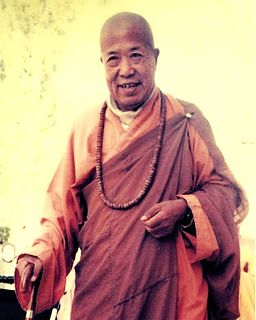 W
WHsuan Hua, also known as An Tzu and Tu Lun, was a monk of Chan Buddhism and a contributing figure in bringing Chinese Buddhism to the United States in the 20th century.
 W
WMa Anliang was a Hui born in Hezhou, Gansu, China. He became a general in the Qing dynasty army, and of the Republic of China. His father was Ma Zhan'ao, and his younger brothers were Ma Guoliang and Ma Suiliang 馬遂良. Ma was educated in Chinese and Islamic education. His Muslim name was Abdul Majid 阿卜都里默直底.
 W
WNan Huai-Chin was a spiritual teacher of contemporary China. He was considered by many to be the major force in the revival of Chinese Buddhism. While Nan was regarded by many in China as one of the most influential Chan Buddhist teachers, he was little known outside the Chinese cultural sphere. Nan died at the age of 94 on Sept. 29th, 2012 in Suzhou, China.
 W
WThe Seven Great Singing Stars were the seven most renowned singers of China in the 1940s.
 W
WShi Jianqiao was the daughter of the Chinese military officer Shi Congbin, whose killing she avenged by assassinating the former warlord Sun Chuanfang. The revenge killing and the legal proceedings that followed were highly publicized at the time and incited public debates over the concepts of filial piety and the rule of law.
 W
WSu Manshu was a Chinese writer, poet, painter, revolutionist, and a translator. His origin name was Xuanying, Su had been hailed as a writer of poetry and romantic love stories in history of early modern Chinese literature. But he was most commonly known as a buddhist monk, a poetry monk, "the monk of sentiment”, and “the revolutionary monk”.
 W
WTaixu, was a Buddhist modernist, activist and thinker who advocated the reform and renewal of Chinese Buddhism.
 W
WTang Shengzhi was a Chinese warlord during the Warlord Era, a military commander during the Second Sino-Japanese War and a politician after World War II.
 W
WTang Xiangming was a Chinese naval officer. Tang studied Naval warfare in France and the United Kingdom. In 1905, he joined the Chinese United League (Tongmenghui). In 1911, during the Wuchang Uprising, Tang, under the command of Admiral Sa Zhenbing, sailed to Hankou as part of the Qing Navy's assistance to the Qing Army operations in the area. In December 1915, he supported Yuan Shikai's creation of the Empire of China (1915–1916). After Yuan's death, he supported the Zhili clique until their defeat by the Fengtian clique in the Second Zhili–Fengtian War in 1924. In 1930, he supported Shanxi warlord Yan Xishan in opposing Chiang Kai-shek. In 1933, he became a member of the China Democratic Socialist Party. During the Second Sino-Japanese War, he went to Chongqing. After the end of the Chinese Civil War, he stayed on the mainland and died in Beijing at the age of 90. He was the younger brother of Tang Hualong.
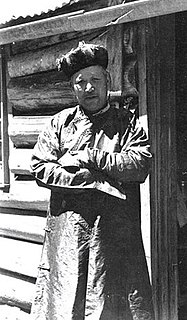 W
WThomas William (Bill) Ah Chow was a Chinese-Australian soldier, farmer, fire lookout and legendary bushman of East Gippsland in Victoria.
 W
WDaisy Yen Wu was the first Chinese woman engaged as an academic researcher in biochemistry and nutrition. Born into a wealthy industrial family in Shanghai, from a young age she was tutored in English and encouraged to study. She graduated from Nanjing Jinling Women's University in 1921 and then studied in the United States, graduating with a master's degree in biochemistry from Teachers College, Columbia University in 1923. Returning to China, she became an assistant professor at Peking Union Medical College between 1923 and her marriage at the end of 1924 to Hsien Wu. Collaborating with him, she conducted research on proteins and studied nutrition. After their marriage she continued to assist in the research conducted by Wu as an unpaid staff member until 1928. She and her husband collaborated in writing the first Chinese textbook on nutrition, which remained in print through the 1990s.
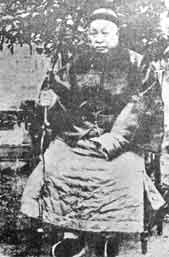 W
WYang Wenhui was a Chinese lay Buddhist reformer who has been called "The Father of the Modern Buddhist Renaissance". His courtesy name was Rénshān (仁山). He was a native of Shídài (石埭) county in Anhui province.
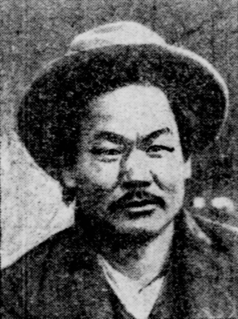 W
WLum You —sometimes spelled Lum Yu—was an immigrant Chinese laborer and convicted murderer in the Pacific Northwest. He is famous for being the only person to have been legally executed in Pacific County, Washington, and for his death row prison break supposedly arranged by the very jailers charged with his captivity.
 W
WYuán Kèdìng, courtesy name Yuntai (云台), was the eldest son of Yuan Shikai. His mother was Yuan's first wife, Yu (于氏), and Yuan Kewen was his younger brother.
 W
WYuanying was a Chinese Chan Buddhist master and the first Venerable Master of the Buddhist Association of China.
 W
WZhang Zuolin was an influential Chinese bandit, soldier, and warlord during the Warlord Era in China. The warlord of Manchuria from 1916 to 1928, and the military dictator of the Republic of China in 1927 and 1928, he rose from banditry to power and influence.